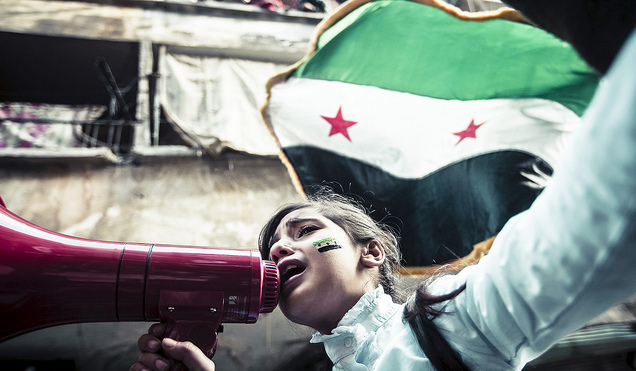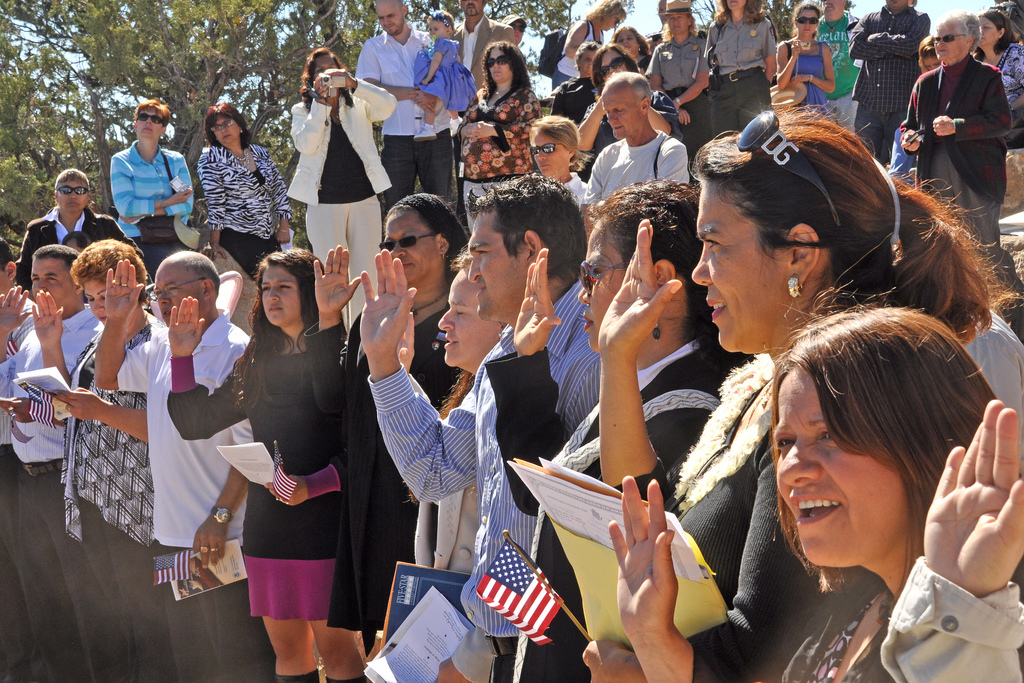Germany faces a uniquely delicate situation due to a recent influx of refugees. Since 2011, Syria has been immersed in a civil war that has rivaled any in recent years, with up to 200,000 people dead and at least 4.5 million internally displaced.[1] The crisis has forced millions from their homeland, which has created an astronomical refugee crisis in neighboring countries. Germany is one of several European nations that have been working to alleviate the refugee burden from Lebanon, Jordan, and Turkey. In doing so, it has created a burden of its own.[2] Germany’s concerns since taking on this humanitarian effort include, overcrowded refugee centers, limited housing options in densely populated areas, and an economic strain on the country. While Germany has not received nearly the same number of refugees that Syria’s immediate neighbors have, the problems the German government have encountered due to this influx are serious nonetheless. Lebanon has a population of 4.5 million and has accepted over a million Syrian refugees into its borders.[3] In contrast, Germany has a population of 80 million and currently only recognizes 334,857 refugees as residing in the country.[4] The problems Germany is facing not only stem from the volume of refugees and a lack of resources, but also an undercurrent of xenophobia, directed especially against Muslims, from a growing vocal minority. Some Germans are finding it particularly difficult to look past the cultural and religious differences of the asylum-seekers, which is causing latent Islamophobia to manifest itself in violent ways. Due to Germany’s stifling bureaucracy, inadequate housing resources, and mounting sentiment of Islamophobia, the country is struggling to accommodate and integrate refugees, with no end to the Syrian crisis in sight.
On October 28th, Berlin held an international conference to address the issue of Syrian refugees. Foreign Minister Steinmeier pledged an additional 500 million euros for Syria’s neighbors, a decision which came after Germany received a record number of refugee applications in 2014.[5] In the first half of 2014, approximately 330,700 people requested refugee status from developed nations, 48,400 of whom were from Syria. Germany accepted a total of 65,700 refugees, the most of any developed nation.[6] While the government continues to vocally pledge support, the refugees’ process of integration has not been smooth.
After refugees are recognized by Germany, they are placed in overcrowded housing centers. The process refugees undergo to be considered “protected” illustrates the reasons for social unrest surrounding Germany’s refugee crisis. Police are often suspicious of illegal entry and will conduct medical tests and invasive procedures to confirm refugees’ stories and supplement missing papers. “Many young refugees find the experience humiliating, as talks with the investigating authorities revealed. Often they also complain about how they are brought from one place to another.”[7] This process takes place before the refugees are approved to stay in the country, which leaves many of them — especially those who suffered particularly traumatic experiences in their home countries — dramatically destabilized in an unfamiliar place. Although Germany is officially accepting all valid Syrians applying for refugee status they must undergo this validation process, which can take up to one and a half years.[8] Bernd Mesovic of the refugee student rights group ProAsyl argues, “What really is traumatic is the often very long asylum procedures. … There has rarely been a time in history when as many people in need of treatment have come to Germany. Often fear is all that remains.”[9]
Not only is the identify validation process complicated and inefficient, but once the refugees are approved for asylum, there are few places for them secure permanent housing. Cologne, a city which currently houses 4,000 refugees, is 500 refugees above their 3,500 capacity limit.[10] Cologne’s primary refugee centers are completely full, leaving the city to look for other businesses to house the daily new arrivals. In 2013, Cologne spent 35 million euros providing housing assistance for refugees, and it plans to spend more than twice that amount by the end of 2014.[11] Recently, Cologne used some of this financial capital to purchase a failing hotel off an auction, with plans to convert it into refugee housing. This purchase demonstrates a willingness, on a municipal level, to alleviate the negative impacts on refugees stemming from poor housing conditions. However, local residents have expressed disapproval of the proliferation of foreign nationals in their neighborhood. The six-million euro deal, locals argue, could be better spent elsewhere and will only cause more business to leave the area. An owner of a nearby bookstore explained his situation, “…a lot of my customers stay at the hotel… I can only assume that many of my customers who live here would be turned away if many foreigners were hanging around outside.”[12] While refugees are not the target demographic for businesses in this area, there is little hard evidence their presence will hurt Cologne’s economy. Instead, the apparent unwillingness to accommodate these refugees because they are ‘foreigners’ could suggest an attitude motivated by other factors, such as Islamophobia.
Recently, Cologne has experienced a rash of violent protests conducted by neo-Nazis against Muslim groups. On October 23, there was a protest of approximately 2,000 to 4,000 people outside of Cologne Cathedral. A riot broke out amongst the protestors, ultimately injuring 44 police officers.[13] The purpose of this demonstration was to expel Salafism, a fundamentalist sect of Islam concerned with establishing Sharia law, from Germany.
Another troubling story surfaced in the town of Burbach earlier this fall, where pictures were released that showed private contractors abusing refugees in conditions that were reminiscent of the Guantanamo Bay or Abu Ghraib scandals.[14] While local officials from the district asserted that this was an isolated incident and that checks would be made throughout refugee centers to ensure this would not happen elsewhere, the story is representative of the second prong of Germany’s refugee crisis: a growing Islamaphobic vocal minority against the influx of refugees from predominantly Muslim countries. In Germany, two of the largest groups of applicants come from Syria and Afghanistan, both majority Muslim countries.[15]
As the United Nations High Commissioner for Refugees (UNHCR) confirms, xenophobia and violence are the chief challenges in Germany stemming from this refugee crisis.[16] Whether this manifests itself in violence within the refugee centers themselves, or through more subtle means, such as bullying, segregation, and hate speech, xenophobia is becoming the most visible reaction to an ever increasing Muslim population. Earlier this fall, a mosque was set on fire in Bad Salzuflen, a town nearby Burbach in the North Rhine-Westphalia region of Germany.[17] The fire endangered the nearby community and injured nine people, three of whom were children. Unfortunately, this violent reaction to an increasing Islamic presence was not an isolated incident. From 2001 to 2012, there were a total of 219 attacks on mosques in Germany alone. And since 2012, there have been 81 more attacks.[18] These numbers show a trend of violence in German towns and cities against the burgeoning Islamic populations. The vulnerable position refugees are placed in, combined with an increasingly unwelcoming country, presents a very unpromising picture for the prospect of peaceful coexistence, let alone assimilation.
While Syria’s immediate neighbors are accepting the biggest group of refugees, Germany is leading developed nations in refugee acceptance. Recently, Germany has become the most active country in the European Union giving aid to the Syrian crisis. Germany has received more refugees in 2013 and 2014 than any other country in the EU, with almost half of the refugees comprised of Syrians. Following the international conference on refugees in Berlin, Germany has continued to pledge economic support to the countries affected by the Syrian crisis. However, the number of refugees entering the country has become a divisive social issue in Germany. An active and vocal minority in Germany have been rejecting the refugees, leading to Islamophobic attacks that have been increasing in frequency since the Syrian crisis escalated in 2011. With no end to the violence in Syria in sight, and the recent surge of ISIS in the region causing more internal displacement, Germany will not stop receiving refugees in the foreseeable future. With this in mind, serious social discussions need to take place or tensions between xenophobic Germans and Muslim refugees will to continue to rise.
Works Cited
[1] “Syria Crisis Situation Overview,” United Nations Office for the Coordination of Humanitarian Affairs, last modified October 30, 2014, http://syria.unocha.org/.
[2] “Germany pledges millions in additional aid for Syrian refugee,” Deutsche Welle, October 28, 2014, http://www.dw.de/germany-pledges-millions-in-additional-aid-for-syrian-refugees/a-18026273.
[3] “Syria’s neighbors appeal for help in refugee crisis,” Deutsche Welle, October 28, 2014, http://www.dw.de/syrias-neighbors-appeal-for-help-in-refugee-crisis/a-18025597.
[4] “Germany: 2014 UNHCR region operations profile” United Nations High Commissioner for Refugees, accessed October 25, 2014, http://www.unhcr.org/pages/49e48e5f6.html.
[5] “Germany pledges millions in additional aid for Syrian refugee,” Deutsche Welle, October 28, 2014, http://www.dw.de/germany-pledges-millions-in-additional-aid-for-syrian-refugees/a-18026273.
[6] “Germany tops asylum claims for first time in 15 years,” Deutsche Welle, September 26, 2014, http://www.dw.de/germany-tops-asylum-claims-for-first-time-in-15-years/a-17958514.
[7] Wolfgang Dick, “For refugees, psychological trauma doesn’t end in Germany,” Deutsche Welle, October 15, 2014, http://www.dw.de/for-refugees-psychological-trauma-doesnt-end-in-germany/a-17998137.
[8] Wolfgang Dick, “For refugees, psychological trauma doesn’t end in Germany,” Deutsche Welle, October 15, 2014, http://www.dw.de/for-refugees-psychological-trauma-doesnt-end-in-germany/a-17998137.
[9] Wolfgang Dick, “For refugees, psychological trauma doesn’t end in Germany,” Deutsche Welle, October 15, 2014, http://www.dw.de/for-refugees-psychological-trauma-doesnt-end-in-germany/a-17998137.
[10] Gabriel Borrud, “Cologne to open refugee asylum in luxury hotel,” Deutsche Welle, September 19, 2014, http://www.dw.de/cologne-to-open-refugee-asylum-in-luxury-hotel/a-17933622\.
[11] Gabriel Borrud, “Cologne to open refugee asylum in luxury hotel,” Deutsche Welle, September 19, 2014, http://www.dw.de/cologne-to-open-refugee-asylum-in-luxury-hotel/a-17933622\.
[12] Gabriel Borrud, “Cologne to open refugee asylum in luxury hotel,” Deutsche Welle, September 19, 2014, http://www.dw.de/cologne-to-open-refugee-asylum-in-luxury-hotel/a-17933622\.
[13] David Whelan, “Violent German Soccer Nazis Have United Against Radical Muslims,” Vice, October 28, 2014, http://www.vice.com/read/germany-football-neo-nazi-hooligans-islamic-state-muslims-fighting-riot-cologne-112.
[14] “Asylum seekers abused in German shelter by security contractors,” Deutsche Welle, September 28, 2014, http://www.dw.de/asylum-seekers-abused-in-german-shelter-by-security-contractors/a-17960732.
[15] “Germany: 2014 UNHCR region operations profile” United Nations High Commissioner for Refugees, accessed October 25, 2014, http://www.unhcr.org/pages/49e48e5f6.html.
[16] “Germany: 2014 UNHCR region operations profile” United Nations High Commissioner for Refugees, accessed October 25, 2014, http://www.unhcr.org/pages/49e48e5f6.html.
[17] “Another German Mosque Set on Fire,” OnIslam, October 12, 2014, http://www.onislam.net/english/news/europe/478445-another-german-mosque-set-on-fire.html.
[18] “Another German Mosque Set on Fire,” OnIslam, October 12, 2014, http://www.onislam.net/english/news/europe/478445-another-german-mosque-set-on-fire.html.



